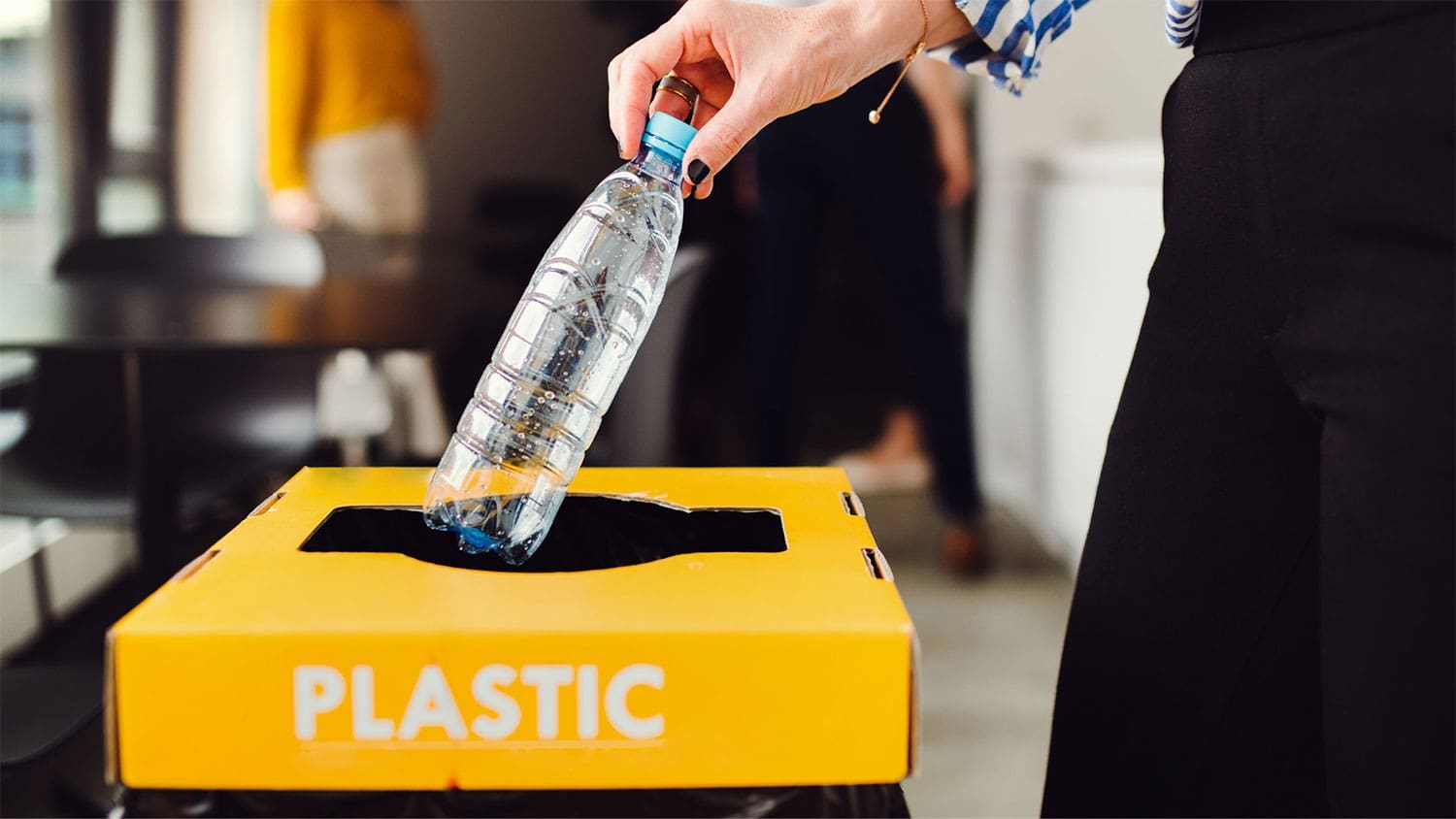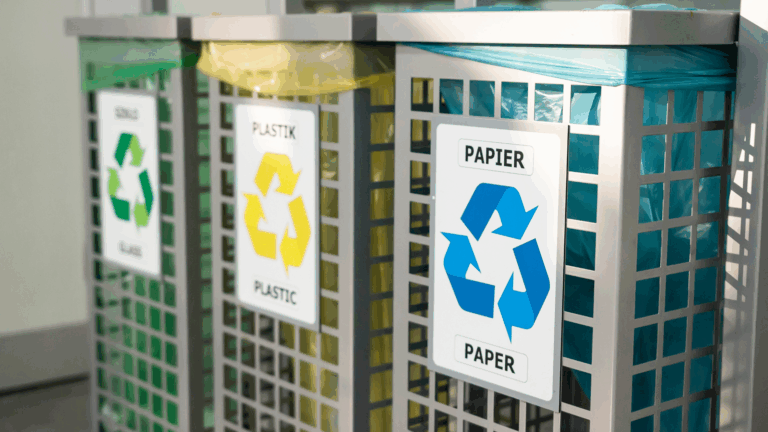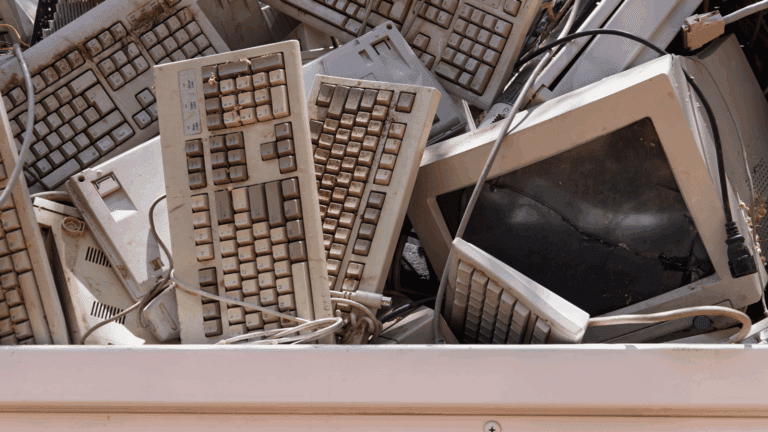
Effective waste management isn’t just for big corporations with sustainability budgets – small and medium-sized enterprises (SMEs) can make a real impact, too. In fact, some of the most effective improvements really are simple, affordable, and easy to implement.
Whether you’re a café, retailer, office, or light manufacturer, here are eight low-cost changes your SME can make to reduce waste, cut costs and stay compliant in 2025.
Carry out a basic waste audit
You can’t manage what you don’t measure. So, the best place to start is with a review of your waste management practices up to now. Start by reviewing the types of waste your business produces; how much you’re disposing of; where it ends up (recycling, general waste, landfill, etc).
A simple waste audit over the course of just a few days can reveal surprising patterns and quick wins.

Separate your waste properly
Many SMEs still use a single bin for everything – although this is certainly reducing now that Simpler Recycling laws have come in for businesses with 10 or more employees – which leads to contamination and higher disposal costs. Introducing clearly labelled recycling bins can make a big difference, especially for:
- Cardboard and paper
- Plastic packaging
- Glass
- Food waste
Clearly labelling each bin is an essential but sometimes overlooked part of this process.
Reduce single-use items
Cutting down on single-use packaging or supplies is one of the easiest ways to reduce waste volume. For example, make the move from disposable cups to reusable mugs or ask suppliers to deliver goods in returnable crates. Small changes like these add up – and can often reduce purchasing costs too.
Train your team
Waste management only works when staff are on board. A short briefing or training session can help your team understand:
- What goes in each bin
- Why waste reduction matters
- How they can contribute day-to-day
No matter how receptive your staff are, however, it is always a good idea to retain a quick visual guide or poster for your break room or kitchen area. That will help them to continue to make the right disposal decisions long into the future.
Reuse packaging and materials
Before throwing things away, consider if they can be used again. Can you:
- Reuse cardboard boxes for shipping or storage
- Repurpose shredded paper as packaging filler
- Collect offcuts or scraps for internal use
Encouraging reuse helps lower disposal costs and reduces reliance on new materials.
Work with a waste provider that supports SMEs
Not all waste services are created equal. At Everflow we are proud to be able to offer flexible, scalable collections, which come with attentive account management. We also provide clear invoices and service reports so that you know exactly what you are paying for. Find out more.
Monitor and adjust your waste collections
Whether your bins are always overflowing or barely used it might be time to adjust your collection schedule. Over-collection costs money and under-collection leads to compliance issues or extra charges. So, be responsive to changes in waste production over time and try not to get caught out.
Display your progress
Let customers and staff know you are taking action. Even small efforts can improve staff morale, strengthen your sustainability credentials and build customer trust.
You don’t need a big budget to make a big difference when it comes to waste management. With a few simple changes it is often possible to save money, enhance environmental sustainability and improve your reputation.

Contact Everflow today!
At Everflow, our goal is to make your utilities simpler. We ensure you get great-value contracts that are tailored to your needs and easy to manage.


